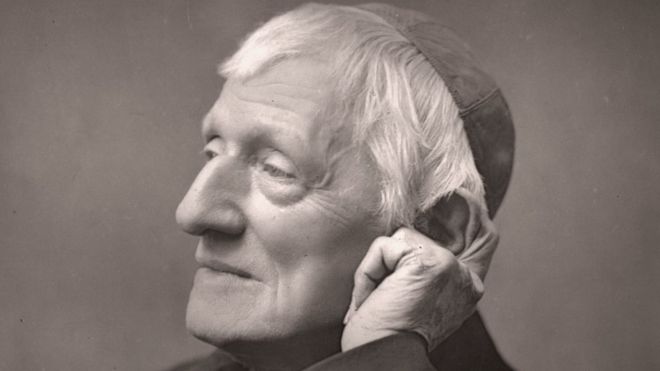
Even a superficial knowledge of the New Testament should be enough to dispel the notion that “saints” in the Roman Catholic [and Eastern Orthodox] sense is utterly at odds with God’s estimation.
When Paul the Apostle addresses congregations, he often writes to “the saints . . .” [see Acts 9:13, 32, 41; Rom. 1:7; 8:27; 12:13; 16:15; 1 Cor. 1:2; etc]. In other words, all Christians are saints. The New Testament designation is about what has happened to the believers as they have been set apart by God. This is the main meaning. There is another aspect of holiness or sanctification that is progressive, but yet again, it is about God’s work in sanctifying. Believers are passive in the setting apart at conversion and in the progressive acquisition of holiness or becoming increasingly sanctified experientially. Paul wrote to the Phillipian saints, ” Wherefore, my beloved, as ye have always obeyed, not as in my presence only, but now much more in my absence, work out your own salvation with fear and trembling. For it is God which worketh in you both to will and to do of his good pleasure. [Phil. 2:12-13 (emphasis added)].
While the Bible places the emphasis on God separating individuals, such as Paul, the Roman Catholic Church pronounces saints those that have been evaluated as specifically “saintly” in behavior while they were alive. This procedure is called a Canonization, as it declares that a person who has died was a saint, upon which declaration the person is included in the list of recognized saints, called the ‘canon.’ Yet, authentic Christianity recognizes another canon, Scripture Alone!
What the Roman Catholics mean by “saint” is one that lived and died in such an exemplary and holy way in their obedience and behavior that they are worthy to be recognized as a saint. In actuality, the act of canonization is restricted to the Apostolic See and occurs at the conclusion of a long process. It requires widespread proof that the candidate for canonization is indeed worthy of sainthood. As Roman Catholicism is a works-based religion, it ought not to surprise anyone that the recognition of saintly behavior brings future blessings even after death.
Now, the latest Roman Catholic from England to be declared a saint is former Anglican, John Henry Newman. This writer is familiar with Newman for his writing on the Fourth Century Arians and of Translations of Athanasius of Alexandria.
Newman was a towering intellect and made strides to bring members of the Catholic and Anglican communities together. Some viewed him as a Trojan Horse, others as a breath of fresh air. His literary output was impressive and he was considered to be one of the greatest of the Victorian writers after Dickens. He has been thought of as a bursting power of spiritual energy, but this writer prefers to see the Cardinal-Made-Saint as an imploding star. The power has turned in on itself and thus despite his genius, Newman leads any that follow him into his own spiritual Balck Hole.
What else is a convinced Evangelical to do? In days such as these, where the ecumenical furor is at its loudest, even surpassing Newman’s era, someone has to stand up and call a spade a spade. Newman went from bad to worse in his switching allegiance from Anglicanism to Catholicism. His trajectory was from one degree of darkness to an even higher degree.
It has been common of late to hear about Catholic-Protestant accords, joint declarations, and movements striving to overcome differences. For example, in an article from the beginning of the year, we read the following: “Despite some new tensions and continuing struggles to overcome centuries of division,” said Bishop Brian Farrell, secretary of the Pontifical Council for Promoting Christian Unity, “practically the whole of Christianity is in a process of advancing beyond the controversies and competition of the past, toward greater understanding, trust, and solidarity.” (1)
Political correctness and civility is the guise of supposed accord and progressive unity, but the Bible remains absolutely explicit about how God is to be worshipped and how God saves sinners. Holding hands across denominational lines may look nice, but it is a sham. Roman Catholicism remains an idolatrous institution. With its elevation of mere mortals to supposed heights whereby they receive admiration [read: adoration] and reverence [read: worship] from the masses, it continues to hate the gospel of Christ. The Roman Catholic Church has never rescinded its anathema of those that proclaim that sinners are justified by faith alone. And, so despite appearances, Roman Catholicism continues to worship dead “saints” and to anathematize living saints.
[Author’s note: on the question of Holiness or Sanctification, one will do no better than to read David Peterson’s book, Possessed By God: A New Testament of Sanctification and Holiness, (Downers Grove, IL: InterVarsity, 1995. This in no way should be read as a blanket endorsement by Pulpit and Pen of InterVarsity, or of the Series in which Peterson’s volume is included, or of its editor, D. A. Carson). On Justification in relation to Newman, one may look at Chris Castaldo, Justified in Christ: The Doctrines of Peter Martyr Vermigli and John Henry Newman and Their Ecumenical Implications (Eugene, OR: Pickwick, 2017.)]
- Cindy Wooden, “Search for Christian Unity is Making Progress, Vatican Official Says” in Catholic News Service. See here.










